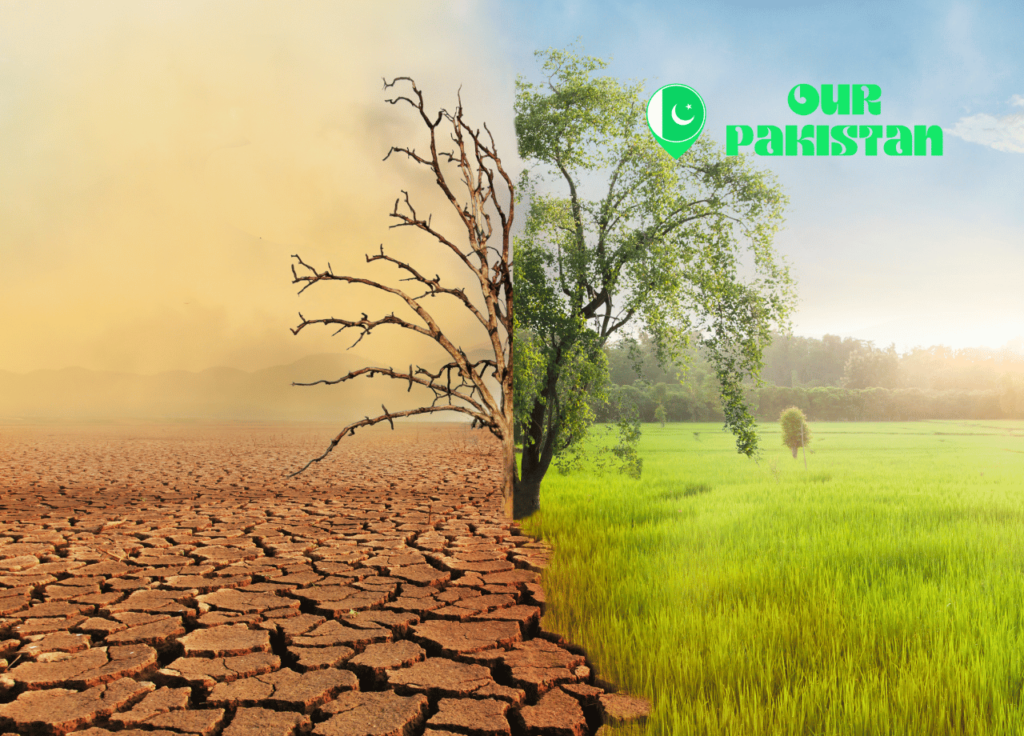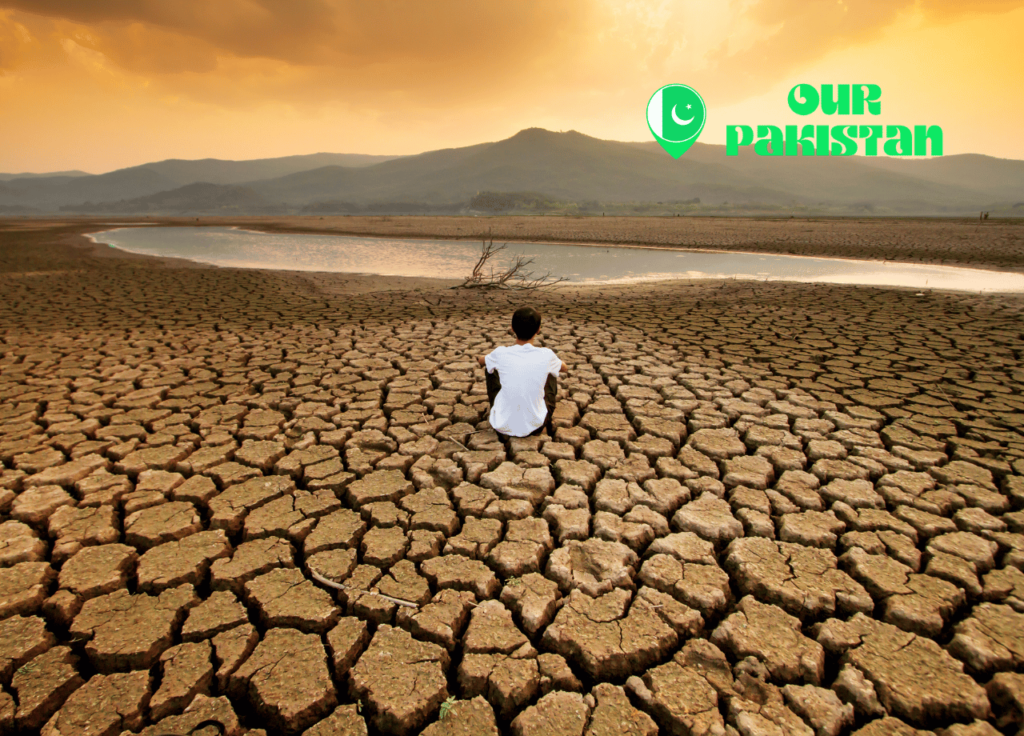Environmental awareness and its impact on the global climate crisis are of utmost importance today. It is crucial to stay updated with environmental and climate-related news, especially within the context of Pakistan. Our website, “OurPakistan,” aims to provide valuable and timely information to our readers, enabling them to make informed decisions regarding the environment.
Current State of Pakistan’s Environment
Pakistan faces numerous environmental challenges, including deforestation, air pollution, water scarcity, and waste management issues. These challenges have severe consequences for both the environment and human health.
- Deforestation: With rapid urbanization and inadequate forest management, Pakistan has lost a significant portion of its forest cover. This loss adversely affects biodiversity and contributes to climate change.
- Air Pollution: Major cities in Pakistan, such as Lahore and Karachi, suffer from high levels of air pollution. Vehicular emissions, industrial activities, and the burning of fossil fuels significantly contribute to this problem.
- Water Scarcity: Pakistan experiences water scarcity due to inefficient irrigation techniques, population growth, and climate change. This issue affects agricultural productivity and exacerbates social and economic inequalities.
- Waste Management: Improper waste management is a pressing concern, particularly in urban areas. Lack of adequate infrastructure and awareness regarding recycling and proper disposal result in the pollution of land and water bodies.

Statistics reveal alarming figures that reflect the severity of these environmental problems in different regions of Pakistan.
- Deforestation rates are estimated to be around 27,000 hectares per year.
- Air pollution causes approximately 135,000 premature deaths in Pakistan annually.
- Water scarcity affects about 20 million people, particularly in the country’s arid regions.
- Inadequate waste management leads to the production of 20 million tons of solid waste each year.
Climate Change and Its Impacts on Pakistan
Climate change poses significant challenges to Pakistan’s ecosystems, agriculture, water resources, and vulnerable communities. The changing climate patterns have far-reaching consequences on various aspects of the country’s socio-economic fabric.
- Ecosystems: Rising temperatures, erratic rainfall patterns, and melting glaciers put Pakistan’s diverse ecosystems at risk. This results in biodiversity loss, ecological balance disruption, and increased vulnerability to natural disasters.
- Agriculture: Climate change adversely affects agricultural productivity through changes in temperature, precipitation, and seasonal patterns. Crop yields are diminished, leading to food security concerns and reduced income for farmers.
- Water Resources: The melting of glaciers in the Himalayas affects the flow of water in Pakistan’s rivers, which are the lifeline for agriculture and human consumption. This, coupled with irregular monsoon patterns, contributes to water scarcity and affects hydropower generation.
- Vulnerable Communities: Climate change disproportionately impacts susceptible communities, including marginalized rural populations and urban slum dwellers. They face increased risks of displacement, poverty, and food insecurity.
Recent climate-related events in Pakistan serve as harrowing examples of the consequences of climate change.
- Devastating floods in 2010 and 2020 resulted in the loss of thousands of lives and caused immense damage to infrastructure and agriculture.
- Heatwaves in cities like Karachi have led to numerous deaths, particularly among the impoverished and elderly.
- Glacial lake outburst floods (GLOFs) pose a severe threat to communities residing in mountainous regions, with increased occurrences due to glacier retreats.
Government Policies and Initiatives
The Pakistani government has made considerable efforts to address environmental issues and combat climate change.
- Policies: The government has implemented policies such as the National Climate Change Policy, which aims to mitigate greenhouse gas emissions and promote adaptation strategies. The Clean Green Pakistan Initiative focuses on solid waste management, sanitation, and tree plantation campaigns.
- Programs: The Billion Tree Tsunami Afforestation Project, launched in Khyber Pakhtunkhwa province, has successfully planted millions of trees to combat deforestation. The Clean Green Pakistan Index promotes healthy competition among cities regarding cleanliness and environmental sustainability.
- Initiatives: The Prime Minister’s Electric Vehicle Policy encourages the adoption of electric vehicles for sustainable transportation. The introduction of renewable energy projects, such as wind and solar farms, demonstrates the government’s commitment to reducing reliance on fossil fuels.
Environmental Advocacy and NGOs in Pakistan
Environmental organizations and non-governmental entities drive Pakistan’s ecological conservation and awareness campaigns.
- Their advocacy efforts focus on promoting sustainable practices, raising public awareness, and pressuring the government to take action.
- NGOs like WWF-Pakistan, Sustainable Development Policy Institute (SDPI), and Climate Action Network Pakistan work tirelessly to protect the environment and lobby for policies favoring sustainable development.
- Notable success stories include restoring the critically endangered Indus River Dolphin population and establishing protected areas like the Khunjerab National Park.
Renewable Energy and Green Technology
Pakistan has been making progress in adopting renewable energy sources and implementing green technology solutions to reduce carbon footprints.
- Solar Energy: Large-scale solar projects, such as the Quaid-e-Azam Solar Park, have been established to harness the country’s abundant sunlight. This mitigates dependence on fossil fuels and reduces greenhouse gas emissions.
- Wind Energy: Pakistan’s coastal areas offer high wind speeds, and wind energy farms have been constructed to maximize this renewable energy source’s potential.
- Green Technology: Using energy-efficient technologies and practices in sectors like construction, transportation, and industry significantly reduces carbon footprints. Techniques like rainwater harvesting and smart-grid systems contribute to sustainable development.
Conservation and Biodiversity
Preserving biodiversity and promoting conservation efforts are essential for Pakistan’s ecological balance and sustainable development.
- Wildlife Conservation: Pakistan boasts a wide variety of wildlife, including endangered species like the snow leopard and the Indus River dolphin. Conservation projects aim to protect these animals and their habitats through initiatives like anti-poaching campaigns and habitat restoration.
- Protected Areas: Establishing and managing protected areas, such as national parks and wildlife sanctuaries, contribute to biodiversity conservation in Pakistan. Efforts like creating the Astola Island Marine Protected Area showcase the country’s commitment to preserving its natural heritage.
- Ecotourism: Recent developments in promoting ecotourism provide economic incentives for local communities to participate in conservation efforts. It fosters an understanding of the intrinsic value of nature and generates funds for further conservation initiatives.

Community Initiatives and Sustainable Practices
Grassroots movements and community-based initiatives are crucial in promoting sustainable practices and environmental stewardship within Pakistan.
- Examples include community-led clean-up drives, tree-plantation campaigns, and waste management initiatives.
- Educational programs and awareness campaigns within local communities empower individuals to take responsibility for their environment.
- This includes initiatives like organizing workshops on sustainable farming practices or encouraging small businesses to adopt eco-friendly practices.
Conclusion
Staying informed about the environment and climate-related news is vital for Pakistan’s sustainable development. We can safeguard the environment for future generations through collective action and individual responsibility. Subscribe to “OurPakistan” for regular updates on environmental news and affairs in the country, and join us in making positive changes in our daily lives.